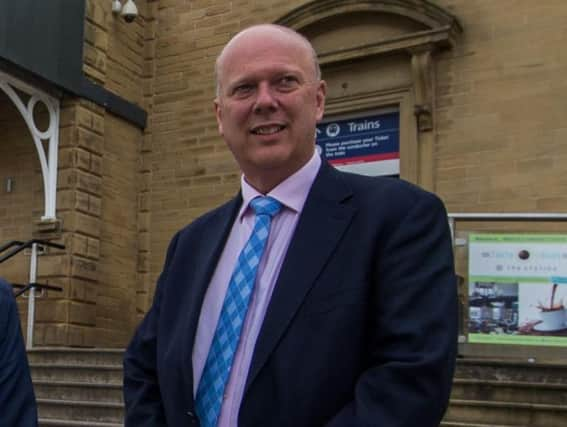Replacement trains will be slower on the track than full electrification


Transport Secretary Chris Grayling said last month ‘bi-mode trains’ which can run on both diesel and electric are likely to operate on the Transpennine route in place of the electric trains that were previously due to be introduced.
He said this was down to the difficulty of electrifying the whole of the Transpennine route - a scheme that was described by his predecessor Patrick McLoughlin as being “at the heart of our plan to build a Northern Powerhouse”.
Advertisement
Hide AdAdvertisement
Hide AdBi-mode trains have already been confirmed as the replacement for electric trains between Sheffield and London after a £500m electrification scheme for the Midland Main Line was scrapped.
When that decision was announced, the Department for Transport said benefits of the decision would include reductions of up to 20 minutes in journey times between Sheffield and London.
But it has now been revealed that journey time improvements will not be down to the trains themselves but instead relate to pre-planned and ongoing track improvement work.
A Department for Transport spokesman told The Yorkshire Post: “Electric trains compared to bi-mode trains do offer marginally reduced journey times. But we are delivering better services, we are delivering reduced times of up to 20 minutes. The differences between bi-mode and electric trains is marginal.”
Advertisement
Hide AdAdvertisement
Hide AdHe said the “exact information” on the time difference between the models and electric trains is not available as the type of bi-mode trains that will be used are yet to be confirmed.
The spokesman said lower journey times will be down to track improvements. “We are investing in upgrades on the route to remove bottlenecks. It is ongoing work.
“The other benefits we are delivering are more seats and more reliable services. By us delivering bi-mode trains, we are saving months and months of disruptive engineering works and track replacements.”
Industry experts told the BBC that bi-mode trains are heavier, less powerful and more expensive to buy, maintain and operate than their electric counterparts.
Advertisement
Hide AdAdvertisement
Hide AdThe announcement by Mr Grayling on doubts over electrifying the Trans-Pennine route between Leeds and Manchester came less than 24 hours after the decision to scrap the Midland Main Line electrification was made public.
Just days later, Mr Grayling confirmed his support of Crossrail 2, London’s proposed £30bn north-south rail line that would run on newly-built electrified lines.
More than 55,000 people have now signed a petition calling for more money for transport in northern England following that series of announcements.